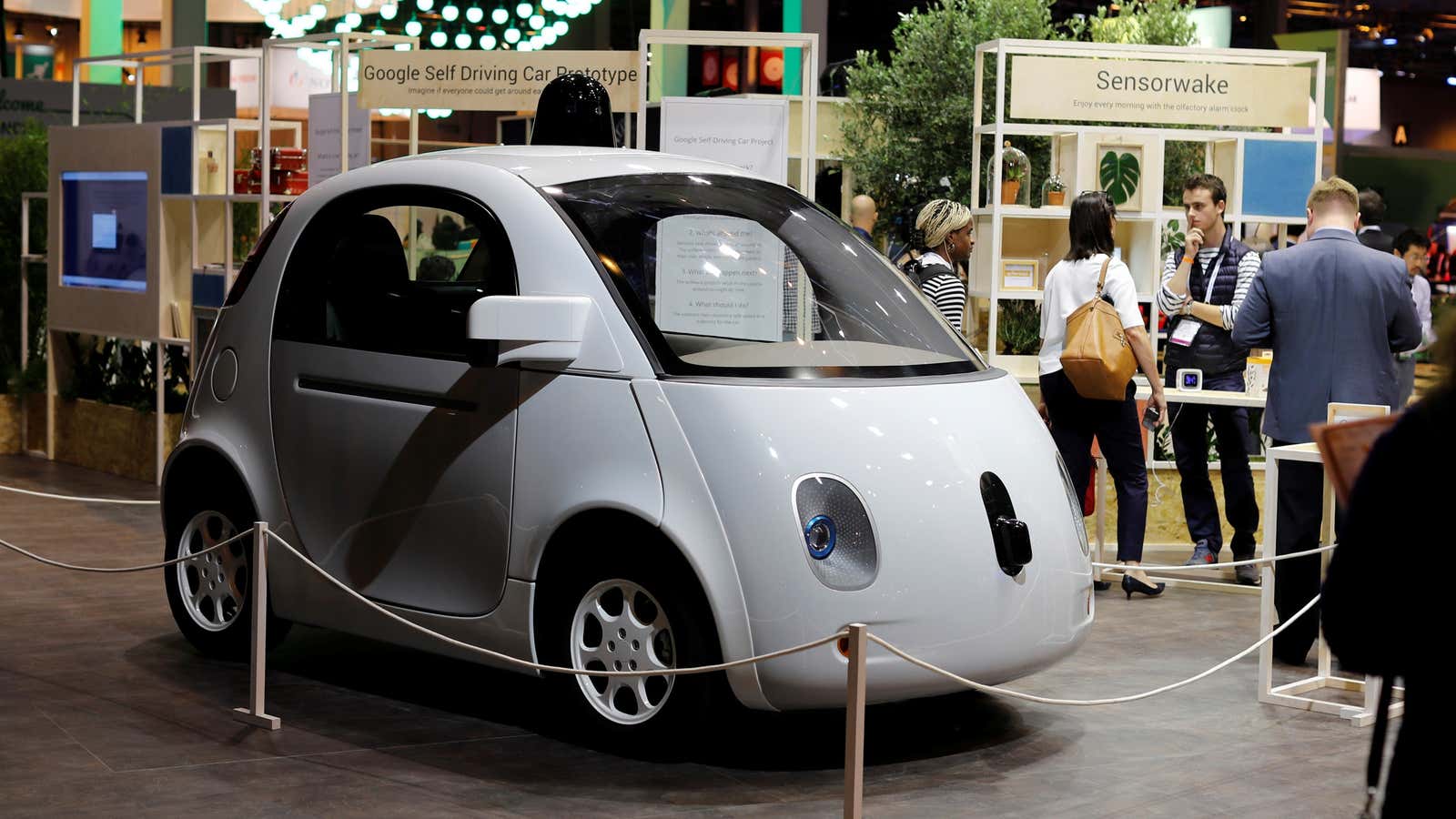It’s been a rough few weeks for Uber.
A blog post published yesterday by Waymo, the self-driving car company spun out of Google (now Alphabet)’s X research lab, outlined what it believes to have been an organized excavation of its intellectual property by one of its previous employees, Anthony Levandowski.
Levandowski started Otto, an autonomous trucking company, after leaving Google. The company emerged from stealth last year, with the goal of automating an industry that employs millions in the US alone, and causes roughly a quarter of the pollution in the US. It was purchased by Uber in 2016 for a reported $680 million, with Levandowski being put in charge of Uber’s self-driving car efforts, as well as building out Otto’s business. Levandowski was one of the original people to work on self-driving cars at Google, coming to the company in 2011 when it purchased a small startup called 510 Systems, which he had founded with friends from the University of California, Berkeley. 51o Systems provided the imaging backbone for what eventually became Google Street View, as well as the self-driving car project.
Waymo has alleged that before leaving the company to start Otto, Levandowski downloaded over 14,000 design files detailing the company’s self-driving car hardware, including the proprietary circuitry design for the LIDAR (or laser radar) technology that Waymo had developed. Waymo detailed Levandowski’s alleged clandestine activity before leaving:
To gain access to Waymo’s design server, Mr. Levandowski searched for and installed specialized software onto his company-issued laptop. Once inside, he downloaded 9.7 GB of Waymo’s highly confidential files and trade secrets, including blueprints, design files and testing documentation. Then he connected an external drive to the laptop. Mr. Levandowski then wiped and reformatted the laptop in an attempt to erase forensic fingerprints.
The company said that it discovered the alleged theft when a supplier apparently inadvertently attached the design of what was allegedly an Uber LIDAR system in an email to Waymo, and engineers noticed the similarity to the one that they had developed themselves. That’s when Waymo looked into the computer history of Levandowski and other former employees now at Uber.
According to the lawsuit it filed in California, Waymo is seeking damages and restitution from Uber and Otto for what it sees as copyright infringement and stealing of its trade secrets. (Levandowski is listed as an inventor on nine patents and seven patent applications held by Google.) Uber provided the following statement on the lawsuit to Quartz:
We are incredibly proud of the progress that our team has made. We have reviewed Waymo’s claims and determined them to be a baseless attempt to slow down a competitor and we look forward to vigorously defending against them in court. In the meantime, we will continue our hard work to bring self-driving benefits to the world.
If adjudged to be true, Waymo’s accusations could have massive implications on an emergent section of Uber’s business that founder and CEO Travis Kalanick has called “basically existential” to securing its long-term future, and the competitive landscape of the autonomous-car industry. It would also show that there are perhaps fewer original players in the self-driving-technology industry than previously believed. As a footnote, Alphabet has put over $250 million into Uber through its Google Ventures investment arm.
The lawsuit also comes after a string of public-relations headaches for the company, including the “#DeleteUber” campaign on Twitter after perceived support of Trump’s proposed immigration ban, and accusations that the company HR’s department has repeatedly ignored allegations of sexism at Uber.
